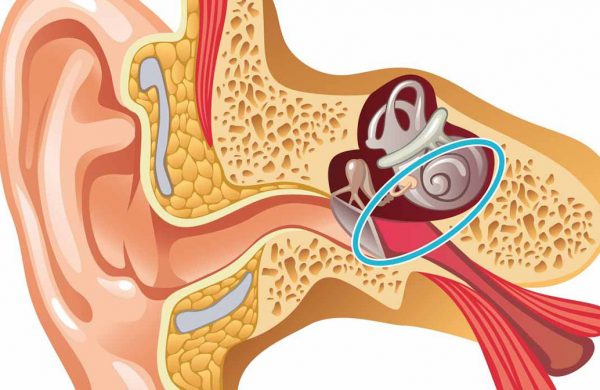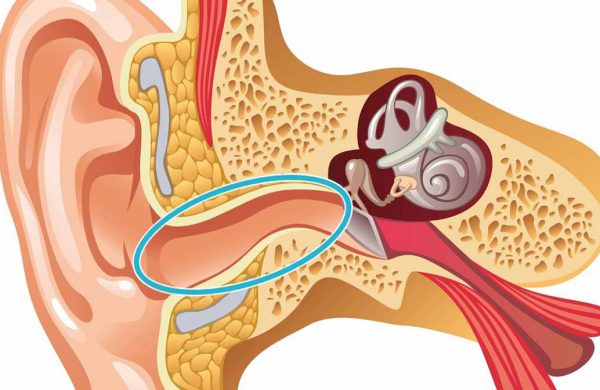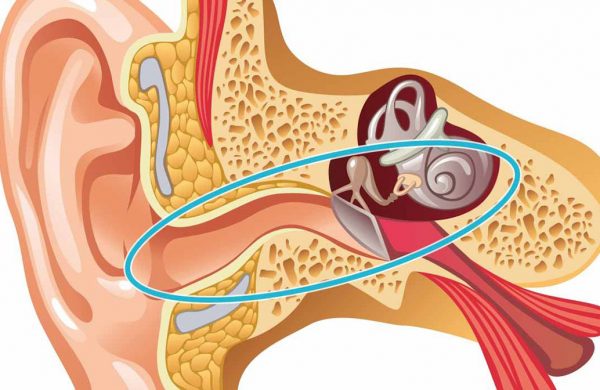Sensorineural Hearing Loss
This is the most common type of hearing impairment. It is connected to two problems: one is the sensory impairment (inner ear), and the other is the neurological impairment (auditory nerve).
This type occurs as a result of damage to the auditory nerve. Therefore, the treatment of this type of hearing impairment cannot be postponed if we want to maintain the growth and safety of the nerve pathways. In addition, it does not usually respond to treatment through drugs or surgery.
Causes
Congenital: As a result of a genetic factor or abnormal foetal growth
Acquired: Aging, Acoustic neuroma and Exposure to loud sounds over a long period of time
Symptoms
In both ears: Difficulty understanding speech when the sound is high
In one ear: Difficulty identifying sounds or hearing in noisy environments
Conductive Hearing Loss
This type of loss occurs when sound does not travel effectively through the ear canal and middle ear bones.
Causes
- Outer and middle ear abnormalities
- Eardrum perforation
- Ear bones decay
- Middle ear infection (Otitis media)
- Earwax blockage
- Otosclerosis
Symptoms
Difficulty understanding speech unless the sound is loud enough and no noise is present in the surrounding environment
Mixed Hearing Loss
This type of hearing impairment is caused by damage to the outer, middle and inner ears. It ranges in severity from mild to severe.
Causes
- Genetic factors
- Birth defects
- Aging
- Acoustic neuroma
- Exposure to loud sounds
- Ear bone decay
- Otitis media
- Earwax blockage
Symptoms
A decreased sound level and greater difficulty understanding speech





